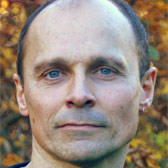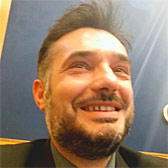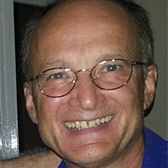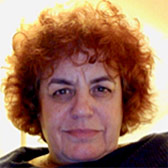Panel V
Perspectives of Body Psychotherapy in Europe
Moderation: Manfred Thielen
The panel discusson shall be conducted under the following four mainly questions.
1. State of the art of bodypsychotherapy in europe and in the lands the participants of the panel are from. Which role plays bodypsychotherapy in the official psychotherapy and in the health care system. Is psychotherapy (and which approach) paid from the health insurances? Exist a law for psychotherapy and the profession of psychotherapeuts?
2. How can bodypsychotherapy advance their state and better anchor in the offical field of psychotherapy in europe and in the lands you work?
3. In which basic orientation bodypsychotherapy should locate itself? In the humanistic orientation like in germany or in the psychodynamic orientation how it was in the recent decades?
4. What are the challenges of bodypsychotherapy today? In a narcissistic, postmodern and capitalitic society like in germany (and perhaps other countries of europe) the second most basic to come not to work are psychic. Psychic problems and disturbances have increased. Also the clinical pictures as burn-out, diffuse anxieties, but also narcissistic- and borderline- disturbances have increased. With which theoretical and practical concepts you work with this clinical pictures? And are the basics of bodypsychotheapy in a neoreichian way or in a sensation oriented form of bodypsychotherapy sufficient to work with them sucessfull?
Manfred Thielen, Dr. phil., Dipl.-Psych., Psychological Psychotherapist, Body Psychotherapist, trainer, training therapist, supervisor, Director of Institute for Body Psychotherapy Berlin, Lecturer at the Institut für Psychotherapie Potsdam, at Berliner Fortbildungs-Akademie and Akademie für angewandte Psychologie und Psychotherapie in Cologne, Lecturer at Hochschule Magdeburg-Stendal, Member of Editorial Board of Psychotherapeutenjournal, Delegate of Berlin Chamber of Psychotherapists and National Chamber of Psychotherapists, Chair of DGK, Chair of AGHPT. Author of numerous publications to Bodypsychotherapy, last: Thomas Harms& Manfred Thielen (Hg.): Körperpsychotherapie und Sexualität. Grundlagen, Perspektiven und Praxis.Gießen 2017, Psychosozial-Verlag.
Speakers
Marc Brami
Wilhelm Reich figured it out: the sane human is personally capable of joy, happiness, even ecstasy, and interpersonally drawn to build cooperative, peaceful, even loving, social systems. As body-psychotherapists, many of us heirs of Reich, we are generally clear about what good body-mind health means on the personal level, but promoting it in our clients may sometimes entail disregarding norms or ideologies our less-than-optimal society holds dear. How “mainstream” do we want to be within such a society? The somewhat ambiguous legislation France adopted in 2004 regarding psychotherapy left many professionals in a quasi-maverick status: how problematic is it, really?
Marc Brami
Psychologist, body-psychotherapist trained in Biodynamic Psychology, writer. Works in private practice, member of the board of APPB (the French Professional Association of Biodynamic Psychology), and training assistant for the Ecole de Psychologie Biodynamique (Montpellier, France).
Alessandro Fanuli
History and development of bodypsychotherapy in Italy is inspired by the first translations of Reich's books in the '60s and develops over a period of about thirty years through a path that winds through a culture, the Italian one, strongly expressive from the point of bodily sight and full of a feeling deeply influenced by the Catholic spirit of inhibition and sense of guilt towards the expressions of pleasure, of body symbol of the sacrifice of Christ. The need to draw a space in a culture influenced by this combination, today finds a solution in the approaches that managed to consolidate a theoretical and experiential orientation also through the contribution of neuroscientific research in recent years that gave impetus to a new epistemological approach to Bodypsychotherapy approach, offering a new point of view on the mechanisms of pleasure and human behavior. Perhaps this new orientation brought greater scientific solidity, but the road to recognition of bodypsychotherapy within health institutions in Italy is still long.
Alessandro Fanuli
Alessandro Fanuli psychologist, Biosistemic bodypsychotherapist, giuridic psychologist expert in the evaluation of sexual and psycologic abuse in children. Works as a psychotherapist, Court consultant, trainer and supervisor at the Biosistemic school of psychotherapy and at the Biosistemic school of counseling in Bologna. Member of the EABP board and chair of the EABP forum.
Ulfried Geuter
In Germany, body psychotherapy is held in high esteem by practitioners as a clinically valuable method, especially for addressing dissociation and alienation from the self in a world which strives to deny the weakness of the suffering body. BP plays a visible role in clinics, congresses, or textbooks. The legal status is, however, weak. According to the law psychotherapy is still restricted to behavioral and psychodynamic therapy. The German Society of BP tries to get BP legally recognised as part of the bigger field of humanistic psychotherapy.
BP is a heterogeneous field with various orientations. I will outline subject-specific reasons for a humanistic-experiential one.
Ulfried Geuter
PhD, psychologist, body psychotherapist and psychoanalyst in private practice in Berlin; training psychotherapist and psychoanalyst; teaches body psychotherapy at various training institutes and at the University of Marburg; many publications; last book: Body Psychotherapy. Outline of a Theory for Clinical Practice (in German), 2015. He is currently writing a textbook on the practice of BP; member of the Continuous Congress Content Committee of EABP.
Kathrin Stauffer
I will present a short overview of the state of body psychotherapy in Britain, where there is no law about psychotherapy but the profession self regulates. I would then like to address the question of modern society, and what body psychotherapy has to offer for the therapy of the increasingly prevalent presentations of burnout and anxiety but also narcissistic disturbances. My main argument is that while BP is very well positioned to address burnout on a body level, we don’t have many specific concepts that help us address the underlying narcissistic neurotic processes.
Kathrin Stauffer
PhD, Body and Integrative Psychotherapist (UKCP), was born and educated in Switzerland. Originally a research biochemist, she retrained at the Chiron Centre for Body Psychotherapy in London. He is the author of the book ‘Anatomy & Physiology for Psychotherapists: Connecting Body & Soul’ (W.W. Norton 2010). She works in private practice in Cambridge, England, as a body psychotherapist, EMDR therapist and supervisor. She is currently the Chair of the EABP Council of National Associations and a Board member of EABP. She has presented workshops on questions of self confidence in the psychotherapy profession, and also on a panel of women’s issues at the 2016 EABP Congress in Athens, Greece. stauffer.co.uk





